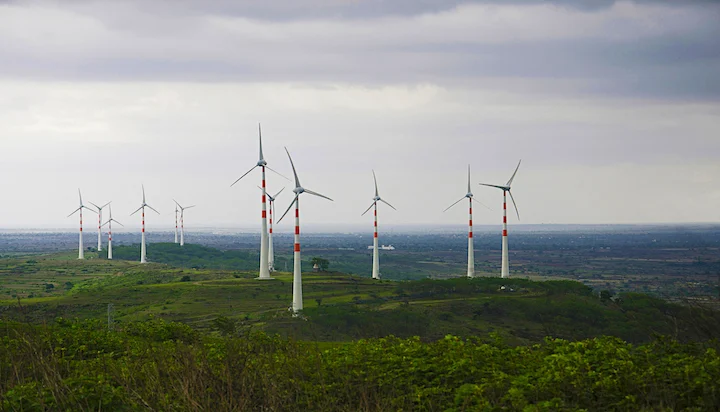From achieving net-zero carbon emissions by 2050 to increase in and equal access to green spaces to improving air quality monitoring, Mumbai has announced many measures in its Climate Action Plan (MCAP) unveiled on Sunday. The city has set a target of achieving total carbon neutrality/net zero emissions by 2050, two decades ahead of the Government of India’s promised deadline set at the Glasgow CO Summit in 2021. India has committed to achieve net zero carbon emissions by 2070. This makes it the first city in South Asia to set such a timeline, reported Bloomberg.
Maharashtra Chief Minister Uddhav Thackeray dedicated to the people the MCAP and hailed the city for being the first in the country to have such a strategy in place, news agency PTI reported.
Speaking on the occasion, Thackeray pitched for sustainable development and said the city’s administrators want to provide amenities to the people. However, he also underlined that citizens must lead happy and healthy lives, reported PTI.
KEY AREAS FOCUS
The MCAP has been devised by the Brihanmumbai Municipal Corporation (BMC) as part of its commitment towards building a climate-resilient city. The plan has proposed some significant changes to the way Mumbai manages energy, water, air, waste, green spaces and transport for its 19 million residents.
The event was also attended by Maharashtra Environment Minister Aaditya Thackeray, Minister of State for Environment Sanjay Bansode and others. Aaditya said that with a strategy (the action plan) now in place for collective implementation, a step has been taken closer to safeguarding the future of the people of Mumbai and that of the planet. “Hereafter, agencies & @mybmc will work on; 1) Low-carbon electricity & climate-resilient infrastructure 2) Zero-emission public transport 3) Decentralised waste management 4) Increase green cover 5) Steps for cleaner air 6) Urban flooding & water management,” Aaditya tweeted.
CM Thackeray said, “Till 2050, the forecast is that 80 per cent of Nariman Point in South Mumbai will be underwater if no concrete action is taken. Therefore, this plan comes at a crucial time.” (sic). The plan aims to serve as a 30-year road map for the city to tackle the challenges of climate change by adopting sector-specific mitigation and adaptative strategies.
MITIGATION TARGETS
The plan has highlighted risks posed to the city under various categories- coastal erosion, landslides, heat, floods and air pollution. It aims for ‘mitigation targets’ in both the short and long term in the backdrop of various recent extreme weather disasters such as cyclone Tauktae, untimely rains and urban floods.
Aaditya Thackeray said that the goal of the state government is to urge people to take action on climate change at the local level. Targets also include a 30 per cent reduction in greenhouse gas (GHC) emissions by 2030 and 44 per cent reduction by 2040.
The civic body carried out a vulnerability assessment and an inventory of GHG and natural green cover with technical support from the World Resources Institute India and the C40 cities network.
KEY HIGHLIGHTS
-The MCAP highlights decarbonising Mumbai’s power grid by using clean fuels and renewable energy. It also aims to build energy-efficient and climate-resilient infrastructure.
-The plan aims to promote low carbon mobility solutions such as cycling and pedestrianisation for sustainable mobility.
-The city wants a zero landfill waste management plan and to increase the vegetation cover.
-The plan also highlights building flood-resilient systems and improving air quality through better monitoring and decentralised planning.
-The idea is to provide sector-specific mitigation and adaptation strategies. This includes investments in housing, electrifying public transport and more walkable roads.
-Energy, sustainable mobility, urban greening and biodiversity, air quality, urban flooding and water resource management are key sectors to be focussed on.
Source: indiatoday.in









